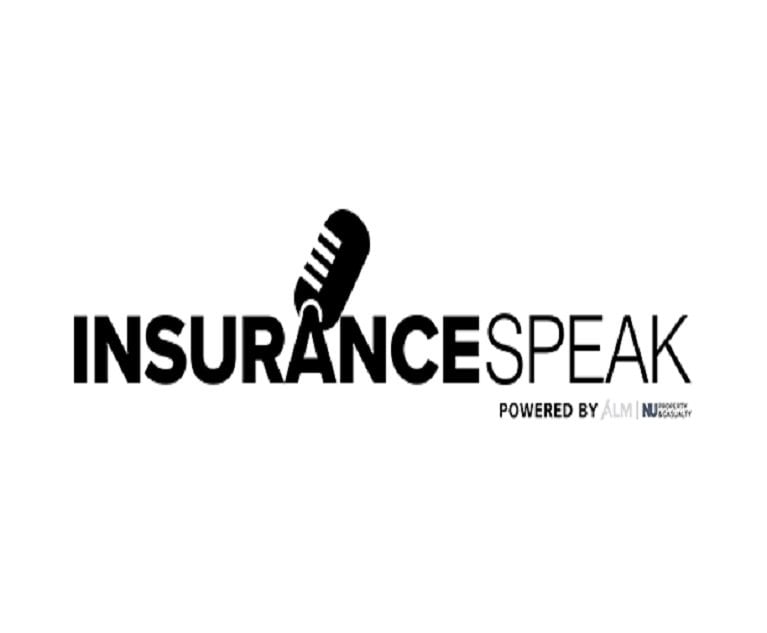An insurance oversight system that would have a centralizedfederal regulator handling some lines of business, while stateinsurance commissioners maintain control over others, was suggestedhere by a member of a professional liability firm.
|Indeed, carving out professional liability and other commerciallines for deregulation or centralized regulation could bepreferable to an optional federal charter, Leib Dodell, presidentand chief executive officer of Media/Professional Insurance inKansas City, Mo., said during the opening session of theProfessional Liability Underwriting Society's annualconference.
|Under optional federal charter legislation that has beenproposed in Washington, insurers would agree to have all or no partof their business under the scrutiny of a federal regulator.
|While other panelists–including Michael McGraith, director ofthe Illinois insurance department–agreed with Mr. Dodell'sassessment that state regulation of commercial lines needs to beimproved, Mr. McGraith repeatedly took issue with the idea offederal regulation over any part of the insurance process.
|The moderator–veteran television journalist ForrestSawyer–kicked off the debate by asking: “Why not just keep thestate system, reform it and drive on?”
|“I don't think the issue is so much who is doing the regulation,but how it's being done,” Mr. Dodell said initially, noting thatthe professional liability lines environment in which PLUS membersparticipate requires them “to move fast to protect [their] capital,and also to get products to our customers.”
|“We need to have an efficient system, and the current structuremakes it very difficult for us to get products out to themarketplace quickly on an admitted platform,” he said.
|“In some lines, state regulation makes perfect sense becausestates have an obvious interest” in protecting consumers, and theyhave “decades, if not more” experience in doing so, he said,referring to personal lines. In other lines, however, it doesn'tmake sense, Mr. Dodell said.
|“Does Idaho have a position on cyber-liability form and ratefilings?” Mr. Dodell asked, suggesting an example of a line wherestate-specific rules don't make sense. It's hard to understand whyregulatory hurdles to getting cyber-insurance and other errors andomissions products out to the market need to exist, he said.
|Mr. McGraith countered that insurance is unique from thesecurities and banking industries, where dual regulationexists.
|In securities, for example, “the consumer assumes the risk”since he or she buys a security knowing it can go up or down. Incontrast, “in insurance, you're transferring the risk,” hesaid.
|“For the most important parts of your life, you're seekingprotection–your health, your life, your family, your home, yourcars. That uniqueness needs to be recognized,” he said, adding thatthere are local differences that need to be appreciated.
|“There are differences between the property-casualty market inFlorida and Illinois,” he said.
|He conceded there are some things that state regulators can dobetter.
|“Some forms take too long for certain states to approve. Weagree with that,” he said, noting that work is being done in theareas of speed-to-market and producer licensing as well.
|Still, Illinois gets 15,000 inquiries from consumers a yearabout issues such as unpaid fender repairs related to autoaccidents. “If we involve the federal government in insuranceregulation, where do these people go?” he asked.
|“When we get into car accidents, do we want to have to deal witha federal agency run by another Arabian trainer?” he asked–making areference to the background of Michael Brown, the former head ofthe Federal Emergency Management Agency.
|“We want someone we can call immediately to get some response.That's what state regulation is for,” he asserted. It's not justabout assuring financial solvency, he added. “It's directinteraction with insurance companies for the benefit ofconsumers.”
|But while Mr. Dodell referred to some elements of state rate andform regulation of commercial lines as cumbersome, Johnny Rowell,head of specialty lines with Beazley Group in London, characterizedthe process of starting up an admitted commercial lines insurer as“torturous.”
|In the U.K. regulatory environment, you can set up a company inabout 60 days, he said, comparing the two-year process he's gonethrough in the United States.
|“We spent two years trying to find a clean shell [and] it cost$10 million,” he said, adding that his lawyers advised him thatchanging the name of the purchased company would cost another $1million.
|“Now nearly 18 months later, unfortunately in some states, ourpolicies are still being issued under the name Mutual of Omaha,”the old name of the purchased shell, he added.
|“While, on the one hand, we're enthusiastic entrants to theadmitted market,” he said–explaining that the London-based firmwanted a U.S. platform to better access small and midsized businessthat it hadn't previously been able to write–”the process issomewhat tortuous, and possibly I am understating that.”
|Later, Mr. Rowell noted that for his company to operate in theprofessional lines admitted market in the United States, it takesfive times the number of people that it takes to write the samebusiness out of London.
|Panelist Gerald Sullivan, president of the Sullivan Group and asurplus lines producer in Los Angeles, also noted there are issuesin the nonadmitted commercial lines market.
|“You correctly address the issues of auto and homeowners, butmost of us here are involved with commercial customers,” Mr.Sullivan told the Illinois regulator, going on to explain thedifficulties involved with placing a multistate risk as a surpluslines producer.
|“The way things are at the moment, the laws are so contrary thatI have to break some [in placing every multistate risk],” he said.“That would suggest that on the commercial side of things there areproblems in adapting, changing, moving” as required to keep up withchanging economics of customers' businesses, he added.
|Mr. McGraith responded that “there's no question that commercialrisk should be dealt with differently than personal lines. Thechallenge is how do define the sophisticated consumer for acommercial policy.”
|Later, Mr. Sawyer asked Mr. McGraith directly if the idea ofhaving “federalism” confined to certain areas of the business mighthave some appeal.
|“Not at all,” Mr. McGraith replied. “As an American citizen I amoffended by the idea that we need to create another massive federalbureaucracy to essentially deregulate an industry that affectsevery single person's life in one way or another.”
|Point/Counterpoint
|Over the course of a panel at the recent PLUS conference,speakers raised both positives and negatives about the stateregulatory system for insurance.
|Negatives:
|o Multistate commercial exposures do not lend themselves tolocal oversight, although personal lines might be handled better atthe state level.
|o State regulatory hurdles slow the introduction of new productsinto the market and raise insurer expenses.
|o State-specific rules don't make sense for certain line ofbusiness, especially in professional lines.
|Positives:
|o Insurance is unique due to local conditions, unlike otherfinancial services, such as banking, thus requiring stateregulation.
|o A federal bureaucracy would be less responsive than stateregulators to consumer problems.
|o Progress is being made among state regulators in streamliningthe speed-to-market and producer licensing process.
Want to continue reading?
Become a Free PropertyCasualty360 Digital Reader
Your access to unlimited PropertyCasualty360 content isn’t changing.
Once you are an ALM digital member, you’ll receive:
- All PropertyCasualty360.com news coverage, best practices, and in-depth analysis.
- Educational webcasts, resources from industry leaders, and informative newsletters.
- Other award-winning websites including BenefitsPRO.com and ThinkAdvisor.com.
Already have an account? Sign In
© 2024 ALM Global, LLC, All Rights Reserved. Request academic re-use from www.copyright.com. All other uses, submit a request to [email protected]. For more information visit Asset & Logo Licensing.








